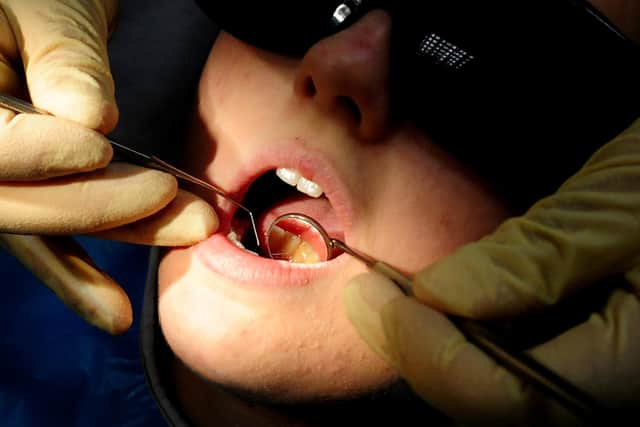Hundreds of Wigan children had rotting teeth removed last year
and live on Freeview channel 276
Data from the Government’s Office for Health Improvement and Disparities shows a significant increase in hospitals removing under-19 year olds' decaying teeth across England following the coronavirus pandemic.
But total extractions remain below pre-pandemic levels, and the British Dental Association said the data "understates the level of demand, given huge backlogs and only partial recovery of elective services."
Advertisement
Hide AdAdvertisement
Hide Ad

The OHID figures show around 390 children aged 19 or younger in Wigan had at least one tooth removed in hospital due to decay in the 12 months to March 2022 – up from around 100 the year before but down from 560 in 2019-20, before the pandemic.
It meant around 524 in every 100,000 children underwent a tooth extraction for decay last year. And with a borough population of more than 300,000, that means more than 1,500 youngsters having a tooth out.
A total of 500 extractions were undertaken in the area, meaning decay accounted for 78 per cent of all procedures.
Nationally, 42,200 tooth extractions were conducted on children in hospitals last year – up from 22,500 the year before but still below pre-pandemic levels.
Advertisement
Hide AdAdvertisement
Hide AdOf them, 26,700 were due to tooth decay, an 83 per cent rise on 2020-21.
Tooth decay is the most common reason for hospital admission in children aged six to 10, while the data also showed children living in the most deprived communities are around 3.5 times more likely to have teeth out due to decay than those in the most affluent areas.
The BDA said it was "deeply concerned that ongoing and severe access problems, together with disruption to public health programmes and lockdown diets", will widen inequalities.
It said the Government is "failing to deliver on much-needed reform and investment", highlighting issues in the recruitment and retention of dentists.
Advertisement
Hide AdAdvertisement
Hide AdEddie Crouch, chairman of the BDA, added: "Tooth decay is still going unchallenged as the number one reason for hospital admissions among young children.
"Decay and deprivation are going hand in hand, and this inequality is set to widen.
"None of this is inevitable. This Government needs to be willing to take off the gloves when it comes to fighting a wholly preventable disease."
